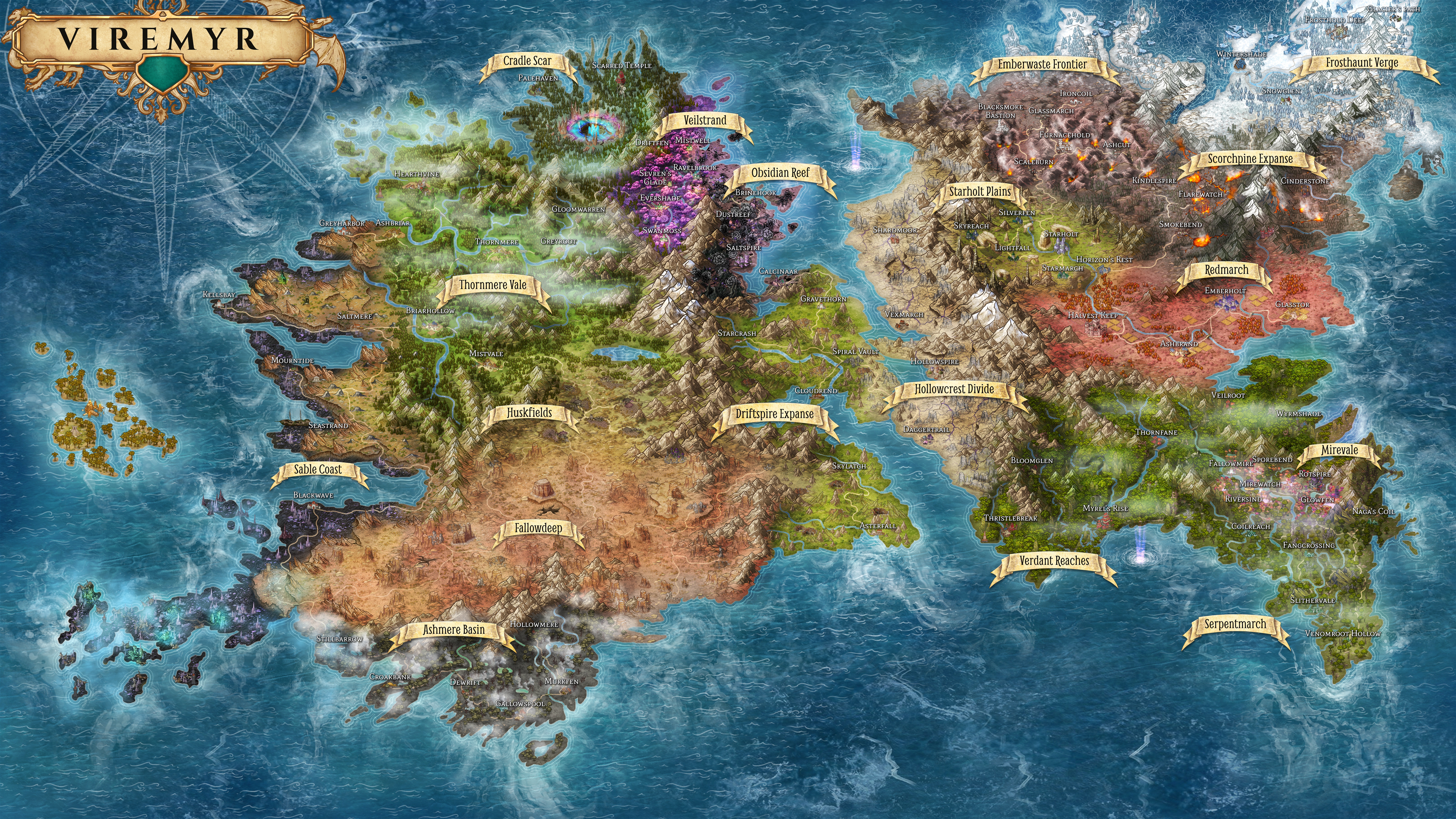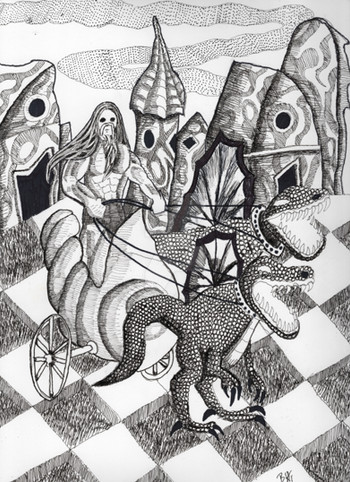HOME | DD
 QuantumBranching — Many Socialisms
QuantumBranching — Many Socialisms

Published: 2010-12-18 04:44:25 +0000 UTC; Views: 6447; Favourites: 35; Downloads: 119
Redirect to original
Description
Ok, another Me/Tormsen co-production...(OTL: our timeline, recall. Our history)
In this TL, some different currents in 19th century thought led to the development of a more radical and alienated Left in Germany by the early 20th century (there had been some nasty political clashes with the Right and center), while in Russia neither Lenin nor Trotsky ended up as leading figures of the Left. A longer WWI in which the US stayed out led to full-blown revolution in Germany as well as in Russia, and in this world the Socialists established a far more "radical" regime than the Weimar Germany of OTL, if still not full-blown Leninist/Stalinist type Communism. With revolution breaking out in France and Italy as well, the remnants of the Entente were unable to crush the German People's Republic in its crib, and a reluctant armistice was concluded with Red Germany and its Austrian and Hungarian Red allies.
In Russia, without the leadership of Lenin and Trotsky, the far Left didn't do as well as OTL: OTOH, the Whites had no great popular legitimacy, and with less of a Far Left threat, were less able to rally moderates to their side. So the Russian civil war dragged on even longer than OTL, and finally ended with a shaky left-center coalition in power, with narrower bounds than OTLs pre-WWII Soviet Union (a larger Poland, and a fairly solid left-wing Caucasian Federation under the leadership of a certain mustachioed Georgian).
Meanwhile, in the East, other development were going on: influenced by some of the more influential non-Marx socialist thinkers of this TL, a Chinese scholar developed his own version of "Communism with Chinese characteristics", a plan for revolution and reform in a mostly peasant, not rural proletariat, nation, also containing some healthy dollops of Confucianist thought. This new model proved very popular with the Chinese intelligentsia, and by the late 20s the leftish elements of this world's equivalent of the Nationalist Chinese had been converted to Li-ism. As OTL, a clash between the Left and Right took place, but here the Confucianist Communists came out on top (not Confucianist-Marxist: Marx is just one figure here in a more intellectually diverse Socialist spectrum).
A Great-Depression equivalent took place, and led to the radicalization of the German Reds, as the semi-capitalist model they had been following so far did not work out at all well and Italy and later France (after the hard left, with German aid, won the Spanish *Civil war) went *Fascist. A major war eventually ensued, with Poland, Italy, France, the Rhineland Republic and Yugoslavia and Romania vs. Spain, Germany, and Hungary (Austria had been "Anschlussed" by this time, and Bohemia-Moravia was a German puppet). Thanks in part to the Russians coming in (they had serious ideological conflicts with the Germans, but Poland had stolen waay too much of the Rodina) the Red states survived the initial attacks and the war dragged on until the Germans dropped a crude nuclear device on a French city.
Meanwhile, in the East, the Japanese as OTL attacked a China seemingly becoming too strong and united: compared to our Nationalists, the Red Chinese regime was a lot better at handling guerilla and Fabian warfare, drawing the Japanese into a deepening quagmire that war for European colonies (guarded here by an undistracted US and UK) could not relieve them from. Economic disaster strikes, mass anger becomes a bit much for the Kempetai, there is a military coup, a navy-led countercoup, and Japanese forces withdraw north into Manchuria. Japan enters a period of political turmoil, assassinations, unrest on the left, etc. China is bloodied and exhausted, but victorious.
In Europe, the UK, France and Russia move into an alliance, terrified by German power. In the 60s another war breaks out over the French Missile Crisis (the UK secretly supplying France with its own atomic arsenal, something forbidden by the Germans since the last war): Germany is hurt badly, (the capital was later moved to Vienna from devastated Berlin) but the UK, France and Russia are hit worse, and Germany and their Red allies proceed to remake Europe. Far from the combat fronts, Eastern Russia breaks away under a radical-nationalist regime, which the Germans let be (occupying European Russia is a massive pain as it is).
Time goes on.
By 2010, the US leads a coalition of democratic nations, one of the major power blocks. The US is more economically left-wing than OTL (but then so is everyone in this world: even the *Fascist states believe in a lot of government intervention in the economy) but also somewhat more religious-minded (a more “centrist” and less politicized Christianity than today’s Fundamentalist right), a bit poorer but with a less polarized income distribution. It is currently allied with the Chinese, who have evolved into a regime no more autocratic that say early 1980s Mexico, and have a lot of free-market activity, in mutual protection against some of the nastier regimes out there.
Germany never really recovered from the human and material losses of the Atomic War, and nowadays the leadership of the European Socialist Union is genuinely multi-national, with something of a coalition of Germans, Italians and Magyars dominating the Assembly and Inner Council. (A “Slavic” counter-block is often troublesome). Harsh measures put in place during the protracted recovery from the War are still in place (the relative poverty of the Union compared to the US is generally explained as being due to the effects of said War).
The French and British Empires survive in exile, white rule in Africa bolstered by millions of refugees from radioactive France and the UK, and the atomic-armed French and British regimes are Not Nice people, although the British still have (some) democracy for white people. (Ironically, the more openly autocratic “free” French regime is actually rather more tolerant: a black Muslim who keeps his nose clean and speaks good French can go very high in the French regime, if not all the way to the top.) A second atomic clash between Communist Europe and the Empires took place in the 80s over the war-torn Congo, but proved limited due to the difficulties in targeting the major cities of the enemies over such great distances (missile technology was less advanced than OTL) and mostly just led to a large part of central Africa getting chewed up.
Japan’s current dictatorship has developed its own national ideology, a weird mix-up of leftism, nationalism, and good old Emperor Worship: finally driven from the mainland in the late 70s, Japan has forged its own, anti-Chinese SE Asian alliance and promoted itself as a champion for various Peoples Who Wish to Breathe Free. The current regime is actually pro-immigration, which annoys many its subjects, who thinks those Indonesians and, worse, Africans are stinking up the place. Said leadership doesn’t care: they will maintain Japanese greatness by hook or by crook, and if that means importing foreign labor to replace Japanese who aren’t reproducing themselves, then they’ll remake them into Japanese.
The Japanese get along fairly well with the Islamicist regimes, which have arisen in reaction to Socialist official atheism and renewed colonial oppression: the Japanese are big buyers of oil, after all, and are uninvolved otherwise in Middle Eastern affairs.
The Free French are aligned with the British in an anti-Communist pact, but otherwise don’t like each other much: the French Secret Services, considered the best in the world, are busy trying to strengthen pro-*Fascist forces in Latin America, where they already have allies, in hopes of creating a greater “Latin” block (this is a constant worry for the US in the region). The British look down on the French and their fondness for miscegenation, and don’t think much of the *Fascist Latin Americans, either: the Siberian Russians dislike the British but get along fairly well with the French.
The Caucasian Federation, what with the collapse of Russia and the Second Civil War, and the end of European colonialism in the Middle East, has become the nucleus of a strong left-wing local alliance, united against the ESU Menace. Jughashvili has a lot of statues in his name here and there, and if he did have quite a few of his enemies murdered, that is considered simply good politics among many of the inhabitants of this unhappy timeline. (he never worked up to mass killing on the sheer _scale_ of his counterpart in our world)
Currently, the European Socialist Union is in deep trouble: aside the aforementioned internal national divisions, the economy has been in a slump for over a decade (the basic limitations of a Command Economy caught up with them a bit later than OTLs USSR, but caught up they have) and suppressing the revolt in Russia is turning into a serious cluster-Fword. Some abroad fear a nuclear war between the Russian Republic and the ESU: others fear the prospect of a ESU civil war even more. This is, after all, a nervous world: there are no less than 14 atomic powers…
Related content
Comments: 2

Free France's continued persistence and influence in many contries despite being reduced to a rump state in Africa and bordering the African territories their archenemies, the Euro-Socialists is pretty impressive.
How could it survive the second atomic conflict and remain such an active power?
What is the name of the state located between the Russian Republic, the Federation of the Caucasus and chaotic Russia?
👍: 0 ⏩: 1

The second atomic clash was in the original scenario I was working with: I suppose I should have changed it, it did strike me as a weak point.
You mean the chunk of Russia? Er, Chunkorussiastan?
👍: 0 ⏩: 0


























